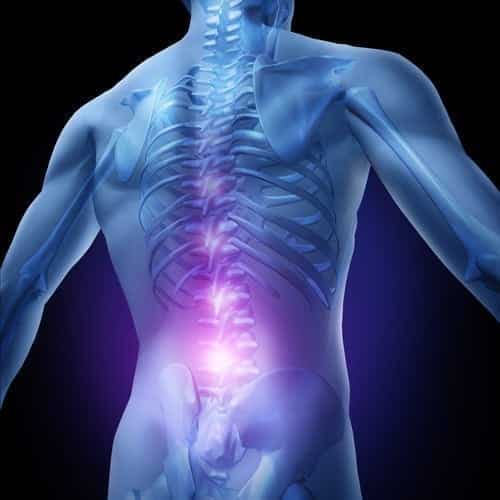
If you have sustained a spinal injury through the negligence of another, you should contact a North Carolina Spinal Injury Attorney to discuss your case and options.
The Bishop Law Firm represents personal injury clients with spinal cord injuries in North Carolina, and we do not get paid unless we win your case!
North Carolina Personal Injury Law
North Carolina is a contributory negligence state, which means that for an accident victim to recover, they must not be at fault for their injury.
Contributory negligence can create unfair outcomes for victims; however, it is currently the law in North Carolina.
In North Carolina personal injury claims, you generally have three years to file a claim for an injury you sustained due to the negligence of another.
A victim can recover medical expenses, pain & suffering (non-economic damages) as well as lost wages. Future medical expenses, lost wages, and pain and suffering should also be sought for those who have suffered spinal cord injury.
Punitive damages can be awarded in a personal injury lawsuit in some instances. The liable party's actions must have been willful and wanton (egregious).
A personal injury lawyer can help a victim determine if punitive damages should be sought.
If you injured your spine at work, you may have a NC Workers' Compensation case as well as a Personal Injury lawsuit, depending on the circumstances of your accident.
Anatomy of The Spine
The spine is made of bones, disks, joints, soft tissues, nerves, and the spinal cord (Cleveland Clinic).
The body's central nervous system, which includes the brain and spinal cord, is by design the most protected area of the human body due to bone encasements (the skull and vertebrae (NIH).
The bony structure that protects the spinal cord is known as the vertebral column. The column is made of cervical vertebrae (top seven), thoracic (middle twelve), lumbar (lower five), sacrum (fusion of 5 vertebrae that connects the spine to the pelvis), and coccyx (tailbone) (NSH).
Within the vertebral column, nerves extend from the brain to the specific area of the body they control.
Injuries to the spinal cord nerves will result in difficulties with the brain's communication, which can result in loss of bladder control, severe pain, and paralysis.

Accidents that cause spinal cord injuries
Traumatic events frequently cause spinal cord injuries. Car accidents and falls are the most common causes (NIH).
In a car accident, whiplash injuries, herniated spinal discs, broken vertebrae, spinal cord injury, facet joint injury, and spinal stenosis can result (NYSS).
Unfortunately, under the wrong circumstances, even minor motor vehicle accidents, bicycle accidents, construction accidents, and bus accidents can cause spinal cord injuries.
Someone else's negligence can cause falls if they fail to maintain their property in a reasonably safe condition.
The central nervous system is complex and vital, but also highly susceptible to injury (NIH).
Types of Spinal Injuries
If you have sustained a back injury, please seek medical attention promptly. Early intervention and faster treatment are crucial in improving outcomes (HPH).
Spinal injuries can range from mild to devastating, depending on which part of the spine you have injured. Unfortunately, even mild spinal injuries can cause chronic pain with radiation and numbness.
Radiculopathy
Cervical (neck) radiculopathy can be caused by trauma, degenerative changes, or anything that puts pressure on the nerve root of the cervical vertebrae.
While you may have neck pain, you may also have symptoms in your hands. You can have numbness, tingling, and loss of coordination in your fingers.
The same is true for lumbar (low back) radiculopathy, except the radiation would be to your hips, legs, or feet.
Trauma that results in displacement of the vertebrae of your spine needs to be corrected quickly to avoid permanent damage to your spinal cord.
Incomplete vs. Complete Spinal Cord Injury
The spinal cord communicates messages from your brain to the rest of the body, which controls movement and reflexes.
After spinal cord injuries, vital nerve communication can shut down due to damage.
A complete spinal cord injury involves motor and sensory function below the injury level. In contrast, incomplete spinal cord injuries can still allow some motor and sensory function below the injury level (NIH).
Permanent spinal cord injury or complete spinal cord injury can leave the victim with permanent paralysis, depending on how far up the cord the injury occurs.
Tetraplegia (quadriplegia) or paraplegia can occur. The importance of seeing a doctor immediately after a spinal cord injury can not be overstated.
Injury to Pre-Existing Conditions
Contrary to what an insurance adjuster may tell you, in North Carolina, exacerbation of pre-existing conditions is compensable.
Under North Carolina's eggshell rule, an at-fault party must take the victim as they find them; thus, if a victim with a preexisting back injury is injured and has a subsequent worsening of their condition, the at-fault party is responsible for that worsening of the condition.
Victims should consult a legal team with extensive experience in cases involving such injuries.
Recovery from Spinal Cord Injury
Spinal cord injuries are usually diagnosed after x-rays, MRIs, or CTs demonstrate the cause of the pain. Treatments for spinal injuries vary from medication and physical therapy to extensive surgery (laminectomy, diskectomy, and spinal fusion).
Some clients with mild to moderate symptoms choose not to have back surgery because their doctors have informed them that it may or may not help their symptoms.
For those with severe pain and paralysis, while there is no cure to reverse the damage, rehabilitation of the remaining nerve signals and preventing further injury are treatment goals (Mayo).
Recovery depends on the type and severity of the spinal cord injury, but complete spinal cord injury has a lower chance of full recovery (Mayo Clinic).
Spinal cord injuries can also result in death. The higher the injury on the spine, the greater the risk of respiratory failure, infections, and embolism (Nature).
A spinal cord injury attorney can help you or your family member attain full and fair compensation.
Do you need a North Carolina Spine Injury Law Firm?
If your spine has been injured in an accident that was not your fault, consulting with a North Carolina Personal Injury Lawyer should be your next step.
A North Carolina Spinal Injury Attorney can help you recover for your medical expenses, missed time from work, and any other accident-related costs.
Gathering your medical records, getting your physician's opinion about your prognosis, obtaining payment for additional medical treatment, valuing pain & suffering, and negotiating with the at-fault party's insurance company are all necessary steps that Spinal Cord Injury Lawyers can help with.
Unfortunately, most spinal problems do not improve with age. This needs to be taken into consideration before injury claims are settled to ensure adequate compensation for ongoing medical bills.
The Bishop Law Firm represents clients with injury cases in Raleigh, Cary, Durham, Fayetteville, Chapel Hill, Wilson, Louisburg, Smithfield, Rocky Mount, and Roanoke Rapids. Call us at (919) 615-3095 for a free case review.

